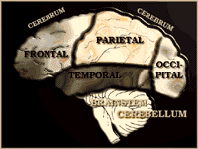
By Gordon S. Johnson, Jr.
Call me at 800-992-9447
Too much of the focus in the study of concussion is in predicting how serious a TBI will become, based upon the way in which the patient interacts with medical professionals on the day of the injury. This misses the point. This is where post concussion syndrome comes in.
While it is true that without a concussion, there can be no brain damage, that is only the beginning of the diagnostic process, not the end. But once there has been an acute injury to the brain, the medical professionals should focus on the ongoing symptoms of concussion, not on categorizing the seriousness of the acute injury. Treatment and advice should be on what can be done to minimize the disruption of post concussion syndrome and post-MBTI symptoms upon the injured person’s life.
I have been writing about concussion and post concussion syndrome to help the TBI survivor to understand and cope for many years. In this latest revision of that treatment, I will offer explanations of why some people have “apparent full recoveries” while others are profoundly impacted by what appears to be a similar injury.
To summarize my theory of the pathology of MTBI:
Diffuse Axonal Injury.
MTBI results in organic injury to the brain. Much of the injury is through the mechanism of shearing, causing diffuse axonal injury. Two complex terms/concepts we will talk much about later.
MTBI Involves a Process of Injury not an Event.
This injury is more likely as a result of strain to axons than actual tearing, which over the first 72 hours results in a cascade of events which can disrupt a significant number of neural connections. The axons are assaulted by neuro-chemicals allowed to go where they shouldn’t, which can cause death or damage to the axons. The axons are the long stringing part of the neuron’s which interconnect neuron’s with each other.
Brain Regeneration isn’t Total Recovery.
Our current research into neuropathology indicates that significant regeneration of damaged neural connections can occur. But the extent of such regeneration falls off considerably after age 40. Further, regenerated neural connections are less efficient than such connections are naturally.
Post Concussion Syndrome Can Hit High Achiever’s Hardest.
As axonal injury is predominantly an injury which disrupts the efficiency and speed of neural connections, individuals in professions which place a high demand on processing speed, are more likely to experience deficits. Thus, most professionals who have suffered a MTBI that continues to be symptomatic after a few days, will feel the effects when sufficient demands are made upon the brain.
Gordon S. Johnson, Jr., the author of this page is a lawyer, not a doctor, who practices law with the Brain Injury Law Group, S.C. Click here for more on the firm.

